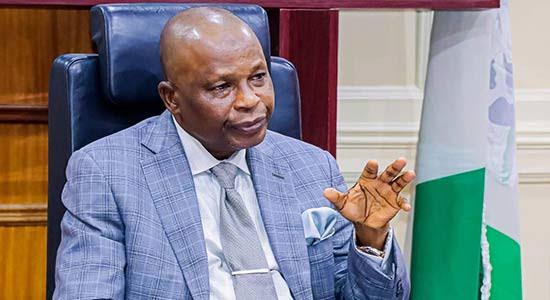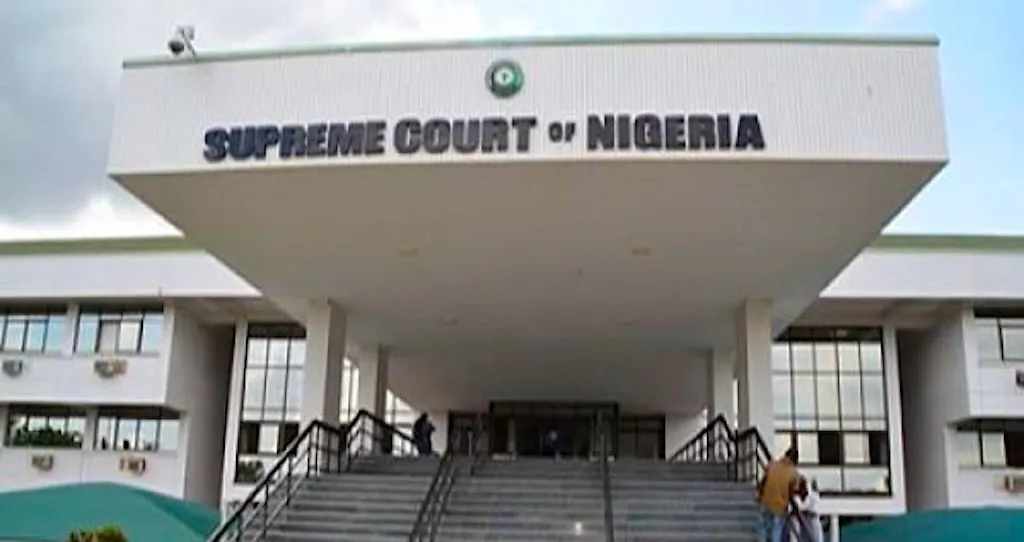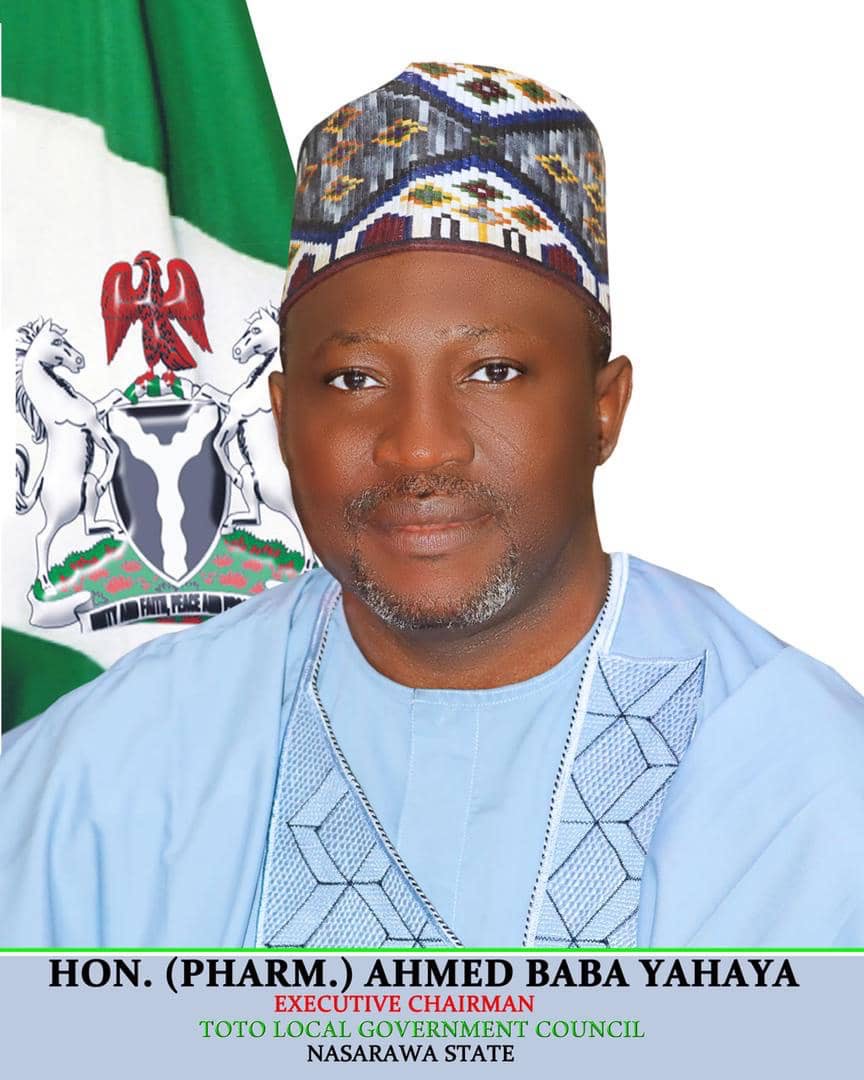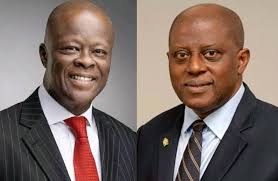
The local government is the lowest tier of governance or public administration within a particular sovereign state.
Local governments generally act within the powers and functions assigned to them by law or directives of a higher level of government.
In Nigeria, the local governments were empowered by the Constitution to advance development at the grassroots level.
With functional local authorities in place, issues of underdevelopment, security, communal clashes, chieftaincy tussles, healthcare, education, and infrastructure, amongst others, can be effectively addressed.
Unfortunately, the 774 Local Government Areas (LGAs) in Nigeria have lost their relevance.
They have been crippled by the state governments therefore, they no longer perform their role of serving the people at the grassroots.
Originally, the local governments were supposed to be administered by local government councils headed by chairmen, who are the chief executives, and other elected members, who are referred to as councillors, but sadly, they have been taken over by the state governors.
Funds meant for them in the Federation Account are paid monthly to them through their respective state governments. These funds are, however, retained in joint accounts with a fraction released to them by the state governments.
The local governments in each state have no say in the use of the funds in the joint accounts controlled by the respective state governors.
AUTONOMY
Successive governments had taken steps at various times to change the narrative, but to no avail. Until the present administration of President Bola Tinubu, through the office of the Attorney General of the Federation and Minister of Justice, instituted a suit against the governors at the Supreme Court, seeking autonomy for the local governments.

Local government autonomy is the ability of the local governments to have some sort of independence to impact the well-being of their citizens.
In May 2024, in a suit marked SC/CV/343/2024, filed by the Attorney General of the Federation (AGF) and Minister of Justice, Lateef Fagbemi, the federal government demanded full autonomy for all the local governments and an order to restrain the state governors from unlawful dissolution of democratically elected local government executives.
The suit also sought tor an order to allow the local governments to get their shares directly from the federation account in line with the provisions of the constitution as against the current practice of joint accounts being operated by the governors.
It prayed the Supreme Court to stop the governors from constituting caretaker committees to run the affairs of local governments as against the constitutionally recognised and guaranteed democratic system.
Part of the suit read: “That by the provisions of the constitution, there must be a democratically elected local government system and that the constitution has not made provisions for any other systems of governance at the local government level other than the democratically elected local government system.
“That in the face of the clear provisions of the constitution, the governors have failed and refused to put in place a democratically elected local government system even where no state of emergency has been declared to warrant the suspension of democratic institutions in the state.
“That the failure of the governors to put a democratically elected local government system in place is a deliberate subversion of the 1999 constitution, which they and the president have sworn to uphold.
“That all efforts to make the governors comply with the dictates of the 1999 constitution in terms of putting in place a democratically elected local government system have not yielded any result and that to continue to disburse funds from the federation account to governors for a non-existing democratically elected local government is to undermine the sanctity of the 1999 constitution.
“That in the face of the violations of the 1999 constitution, the federal government is not obligated under section 162 of the constitution to pay any state funds standing to the credit of local governments where no democratically elected local government is in place,” it read.
SUPREME COURT JUDGEMENT
On Thursday, July 11, 2024, the Supreme Court, in a unanimous judgement of its seven-member panel, broke the chains of captivity, granting financial autonomy to the nation’s 774 local governments.
Justice Emmanuel Agim, who delivered the lead judgement, held that the local governments across the country should, from July 11, 2024, receive their allocations directly from the Accountant-General of the Federation, adding that it was illegal and unconstitutional for governors to receive and withhold funds allocated to local government areas (LGAs) in their states.

“It is the position of this court that the federation can pay local governments allocations directly to the local governments or through the states. In this case, since paying them through the states has not worked, justice demands that local government allocations from the federation account should henceforth be paid directly to the local governments,” Mr. Agim ruled.
He said, “I hold that the states’ retention of local government funds is unconstitutional.
“The amount standing to the credit of local government councils must be paid by the federation to the local government councils and not by any other person or body.
“An order of injunction is hereby granted restraining the defendants from collecting funds belonging to the local government councils when no democratically elected local government councils are in place.
“An order that henceforth no state government should be paid monies standing to the credit of the local government councils.
“An order for immediate enforcement and compliance with these orders by the state governments and successive governments henceforth,” he ruled.
IMPLEMENTATION OF SUPREME COURT JUDGEMENT
On August 20, 2024, the Federal Government inaugurated an Inter-Ministerial Committee to enforce the Supreme Court judgement delivered on 11th July, 2024, granting financial autonomy to local governments in the country.
The 10-man committee was inaugurated by the Secretary to the Government of the Federation (SGF), Senator George Akume.
The members of the committee are: Secretary to the Government of the Federation—Chairman, Hon. Minister of Finance & Coordinating Minister of the Economy—Member, Attorney General of the Federation & Minister of Justice—Member, Hon. Minister of Budget & Economic Planning, Accountant General of the Federation Governor, Central Bank of Nigeria, Permanent Secretary (Federal Ministry of Finance)—Chairman, Revenue Mobilisation Allocation & Fiscal Commission, Representative of State Governors, Representative of Local Governments.
The committee’s primary goal was to ensure that local governments are granted full autonomy, allowing them to function effectively without interference from state governments.
The move was also in line with President Bola Tinubu’s efforts to give appropriate implementation to the provisions of the Constitution, which recognises local governments as the third tier of government.
REACTIONS FROM LOCAL GOVERNMENT CHAIRMEN
Speaking to TheFact, the newly elected Toto local government chairman in Nasarawa state, Pharmacist Ahmed Baba Yahaya said “Generally, we can say that the supreme court judgement has granted the local governments financial autonomy, and work is ongoing to come up with the framework on the implementation of this judgement. What is, however, left is the administrative autonomy.
“What this means is that without administrative autonomy, the local governments are still answerable to the States of Assembly. The state’s assembly will continue to make laws and oversee the local governments in Nigeria. So, the local governments are not fully detached from their State Houses of Assembly and, by extension, their state governments.

“What is not in doubt is that with financial autonomy, our dispensation would definitely fare better than the past ones. This is because there would be more funds available with the financial autonomy. Administratively too, it won’t be completely a hopeless situation; ours won’t be as hamstrung as those of the past dispensation.
“With more money and authority in our hands, we are expected to focus more on local challenges and deploying our resources to solving them. We should be seen to do better than the past dispensation. What we must have to contend with is that with the abolition of the state-local government joint account, some commissions must have to cease to exist. Commissions such as the local government civil service, however, need to be replicated at the local level so that some of their functions that are very necessary would have to be taken over.
“The traditional rulers, with the new regime of local government administration, will have to play more roles for the peace and development of our local governments. We will have to improve their authorities and status of office to play more tangible roles in the governance of their areas of domain. I remember when our royal fathers had the real authority in the past; they were so effective in their roles, so much so that they kept a tab on who came into their domains and who were their hosts. That helped a lot in curbing unwanted visitors who came with the intention of hurting our communities. But all that changed after the enthronement of constitutional democracy, stripping them of roles in democratic governance. While that might have been for a reason, it also came with attendant consequences on our socio-security well-being. We will look into how we can tap into their wisdom without violating the constitution.
“The importance of local government autonomy is beyond just the finance. It would be good for leadership recruitment. It is expected that young men and women would now have the chance to lead the local governments, make their mistakes at the local level, and learn as they climb up the leadership ladder to the state and the federal level. And at the level of the Association of Local Government of Nigeria (ALGON), we will be able to share ideas and peer review ourselves while we make progress, hopefully,” he said.
Also speaking to TheFact, the Chairman of Keffi local government, Dr. Idris Damagani, said, “As the Chairman of Keffi Local Government, I would say the pivotal development presents both advantageous opportunities and potential challenges for local governance.

“With the development, we nowhaven enhanced fiscal independence. Local governments can now manage their finances without undue interference from state governments. This autonomy enables more direct control over budgetary allocations and expenditure priorities, allowing funds to be directed to critical local needs. It would also improve service delivery. With access to independent funding, local governments can invest in infrastructure, healthcare, education, and community development projects tailored to the specific needs of their constituencies. This can lead to a direct improvement in the quality of life for residents. It will further encourage local initiatives as the autonomy will foster an environment where local leaders can initiate development programs reflective of their communities’ values and priorities, enhancing local ownership and accountability. Then there is also the attraction of investments to the locallevel,l as a financially autonomous local government can create a more conducive atmosphere for business and investment, potentially leading to job creation and economic growth.
“As you know, there is also a downside to every development. It’s a standard human trajectory. For instance, there would be the challenge with regard to the risk of mismanagement and corruption at the local level with more money in the hands of local politicians. There is no doubt that greater control over finances may lead to the temptation of self-aggrandisement. Some local leaders might misuse or mismanage funds, leading to a decline in public trust and ineffective governance.
“Similarly, inequality Among local governments in the country, not all local governments have the same revenue-generating capacity. This disparity might exacerbate existing inequalities, leaving less affluent areas struggling to fund essential services while wealthier local governments thrive. Furthermore, there could be an issue of inexperience in budget management on the part of some local government leaders who may lack the expertise needed to effectively manage larger budgets, leading to poor financial decisions.
“First, I would say there is the need to establish robust financial management systems. Local governments should prioritise building competent financial management teams equipped to handle budgets transparently and responsibly. Continuous training and capacity building for staff are essential. There is also the imperative of engaging the local communities by involving local citizens in decision-making processes to ensure that projects address actual community needs. This can foster greater accountability and transparency.
“The local government leaders should prioritise the implementation of checks and balances through setting up independent auditing systems and oversight committees to mitigate the risk of corruption and ensure funds are used appropriately. There also needs to be a collaboration among local governments with a view to sharing best practices, resources, and expertise themselves, as this can enhance overall governance effectiveness and financial management. Lastly, they should foster transparency and accountability by publicly sharing financial reports and project outcomes with residents. Transparency can build trust and encourage community participation in governance,” he said.






